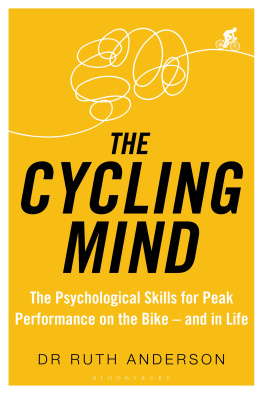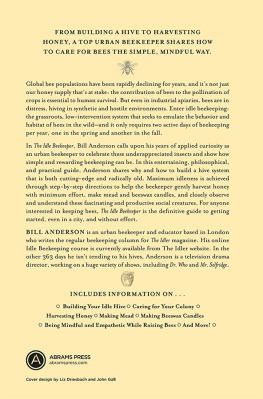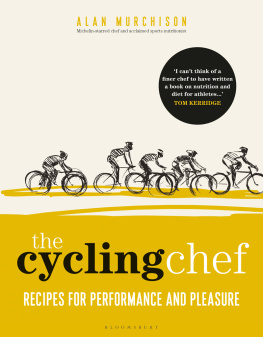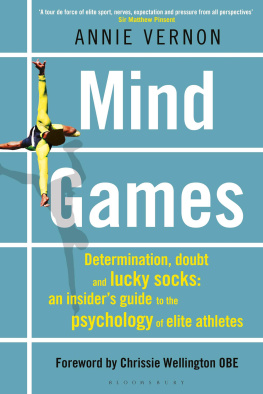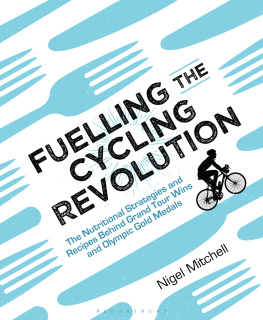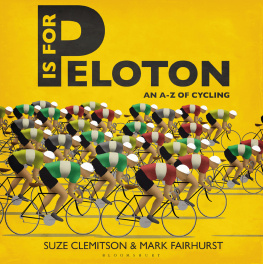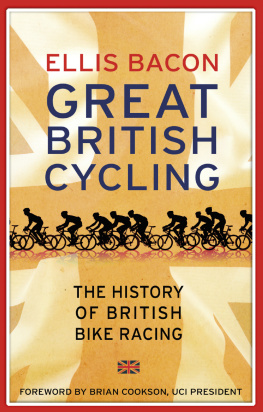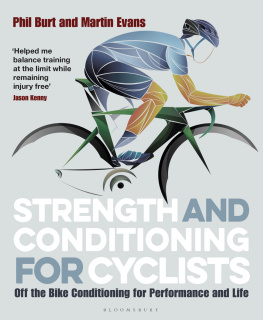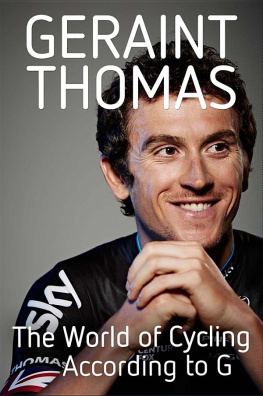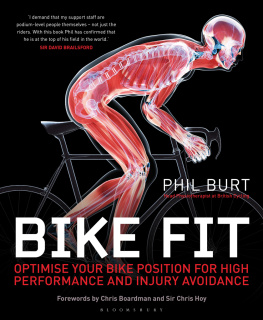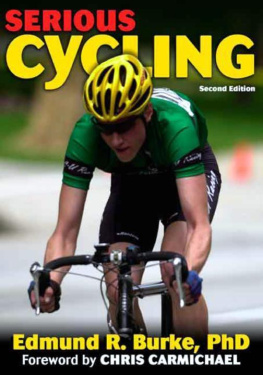

Contents
Joanna Rowsell Shand MBE
I learned very early on in my sporting career the importance of psychology. All the best preparation in the world in terms of training and nutrition can be wasted if nerves get the better of you on race day.
But sport psychology isnt just about dealing with race-day nerves. Its about being able to deal with the demands of training day in, day out, which can sometimes feel like sitting an exam every day due to the scrutiny of every training session. Its about being able to deal with the different personalities of teammates and coaches and how your interaction can affect each others performance. And its about being able to deal with everything else life throws at you and still be able to get on your bike and perform.
Sport psychology has helped me so much throughout my career, and the lessons I learned as an athlete about dealing with pressure, dealing with failure and dealing with other people are paying off now in everyday life. Everyone responds differently to difficult situations and Ruth taught me that sport psychology wasnt just about learning to deal with my own nerves but also about how to respond to others at times when under huge pressure. Working well together as a team can pay huge dividends in moments like this. The training is done. The work is in the legs. Youve eaten right and rested well. But your head can make or break everything. Dont neglect it!
It is an extraordinary experience watching my clients compete at the Olympic Games and World Championships. Athletes aim to win gold and train for an opportunity that comes only once every four years, and my job is to prepare them to give their best performance when it counts. Rio 2016 was my third Olympic campaign, and as I stood in the centre of the velodrome watching the Great Britain Womens Pursuit Team get ready to race for gold, there were several questions running through my mind the same questions I had asked myself watching athletes competing in Beijing and London.
Are they following their competition plans?
How are they controlling their anxiety?
Will they be able to execute their skills under this level of pressure?
The team had broken the world record twice in previous rounds, but going into a final as the favourite isnt always advantageous. The expectation to win brings a new psychological challenge and can be a significant distraction. I was confident in the hard work of the team, but no one can predict how athletes will respond to the pressure of the Olympic environment. Four minutes and ten seconds later, my questions were answered: the team won gold and broke the world record again. It was a success, defined not only by the gold medal but by the ability of the team to create their best performance at the highest possible level of international competition. The Great Britain Cycling Team went on to win six gold, four silver and two bronze medals in Rio and the same questions ran through my mind before every race I watched.
My experience was no different watching the Australian Cycling Mens Pursuit Team walking to the line at World Championships as the current world record holders of the event, ready to test whether they could not only replicate but exceed their prior performance standards. Regardless whether the mission is Olympic Gold, a world record, performing for the first time in an international race, or a stage win in a road race, an athlete will achieve peak performance if she sticks to her plans, possesses the skills to find her own optimal psychological state, and can execute those skills under pressure. At the Olympic Games every athlete who competes in a final has comparable physical and technical skills, and what sets medallists apart from their competitors is their psychological ability. A good competitor can perform in competition, but a champion will thrive under the pressure and excel.
Athletes who succeed at the highest level of international competition undoubtedly have exceptional talent, but talent alone does not win gold medals. Races won at the Olympic Games and World Championships are due to the hard work of athletes who have trained their bodies and minds to perform at their best over many years. The teams achieve medal success because they work diligently to maximise their ability, and dont ignore one of the most important areas most often neglected by competitors: psychological skills. A common belief held by many is that gold medallists must be infallible, and so mentally strong that nothing can impact their ability to perform. That is a false belief, a myth only. Every competitive athlete will experience performance anxiety. Every competitive athlete will endure times when they doubt their ability to achieve. Every competitive athlete will face adversity in the training and competition environment. The athletes who win medals understand their psychological state and are able to take control when it matters to gain the optimal state for performance. If you want to be successful on your bike or in any area of your life, you can develop the mindset that will help you to excel. To reach your personal best, all that is required is for you to commit to working on your mind as much as on your body. There are no shortcuts to success. It is hard work, but if you are committed, you can develop the same psychological skills that produce gold medal performances.
The Cycling Mind reflects the expertise gained though my 25 years of work and research across clinical and sport psychology with cyclists from many nations, and athletes from a diverse range of sports. The book will lead you through the psychological skills that an elite cyclist develops along their pathway to performance excellence. It is not, however, a book offering the promise that a few quick steps, or one strategy alone, will lead immediately to success. Why? Because achieving excellence is just not that simple. Understanding your psychological functioning, making changes, and developing a new mindset takes time and hard work. The Cycling Mind is a book that contains the information and tools for you to create your route to peak performance, and to acquire the psychological skills that will take you there. Commit to changing your mindset and you will become a champion on and off the bike.
The Route to Peak Performance
If you are seeking to unlock your potential, and are ready for the challenge, you can follow the pathway taken by an elite cyclist. Travel through the key stages, from training to competition, to acquire the psychological skills required for performance excellence.
Create
To start on the route to peak performance, it is crucial that you understand the powerful role your mind can play in creating success on your bike and in your life. You are in charge of your psychological state, and learning the central principles of performance psychology will lay the foundations for you to compete at your best.
Train
Behind every performance gain is a considerable amount of planning and a lot of hard work, and psychological gains are no exception. Training your mind alongside your body will enable you to develop the behaviours required to succeed.
Control
Critical for all cyclists is the ability to stay calm and in control of thoughts and emotions when confronting challenge. Taking charge of your mind when under pressure will allow you to discover your optimal psychological state to perform.

